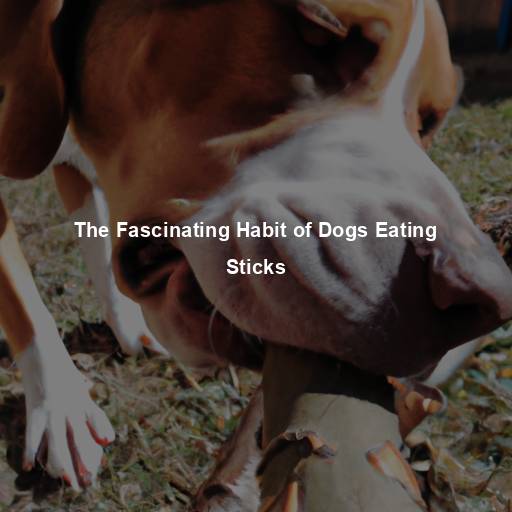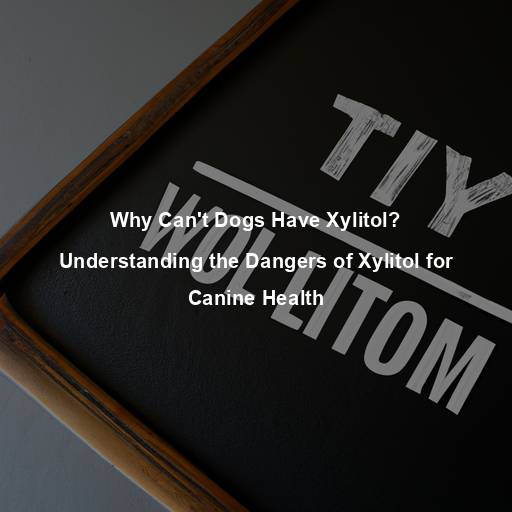Do Dogs Get COVID-19? Unraveling the Canine Connection
Last Updated on October 31, 2023 by Evan
Contents [hide]
- 1 Understanding the Potential Transmission
- 1.1 Canine Susceptibility to COVID-19
- 1.2 The Occurrence of Infection in Dogs
- 1.3 Transmission Dynamics: Human to Dog
- 1.4 The Role of Fomite Transmission
- 1.5 Can Dogs Transmit COVID-19 to Humans?
- 1.6 Precautions and Best Practices
- 1.7 The Emotional Support of Dogs
- 1.8 Ongoing Research and Vigilance
- 1.9 Understanding the Canine Immune System
- 1.10 Immunological Variations
- 1.11 Immune Response to SARS-CoV-2
- 1.12 Vaccine Development for Dogs
- 2 Addressing Canine Testing and Surveillance
- 3 Mental Health Benefits of Dogs during COVID-19
- 4 Looking Ahead: The Future of Canine Research
- 5 Canine COVID-19 Testing and Surveillance
- 6 Mitigating Risks and Ensuring Canine Well-being
- 7 The Canine-Human Bond in Challenging Times
- 8 Looking Forward: A Canine-Inclusive Future
- 9 FAQs – Do Dogs Get COVID
- 9.1 Can dogs get COVID?
- 9.2 How do dogs get infected with COVID-19?
- 9.3 Are all dog breeds equally susceptible to COVID-19?
- 9.4 What are the symptoms of COVID-19 in dogs?
- 9.5 How can I protect my dog from COVID-19?
- 9.6 Can I walk my dog during the COVID-19 pandemic?
- 9.7 Should I get my dog tested for COVID-19?
- 9.8 Can my dog receive the COVID-19 vaccine?
Understanding the Potential Transmission
The specter of COVID-19 continues to cast its perplexing shadow over our lives, leaving us grasping for answers in this era of uncertainty. With our beloved pets ever-present by our side, it is only natural to question if they too are susceptible to the clutches of this invisible enemy. In a bid to untangle the enigma, we delve deep into the web of scientific knowledge, exploring the intricate link between our canine companions and the elusive coronavirus, debunking myths and revealing evidence-backed truths along the way. So let us embark on this enlightening journey, where we uncover the secrets that lie beneath the surface.
Canine Susceptibility to COVID-19
In this perplexing time, we find ourselves questioning the similarities between man’s best friend and ourselves. Astonishingly, it turns out that dogs, like humans, harbor ACE2 receptors that could potentially serve as the gateway for the notorious SARS-CoV-2 virus. As initial studies have delved into this enigmatic realm, it has been revealed that our furry companions can, indeed, fall prey to this merciless virus. Yet, amidst the chaos, we must strive to unravel the intricate complexities surrounding their susceptibility and the repercussions it may have on the transmission of the notorious COVID-19.
The Occurrence of Infection in Dogs
While dogs can contract the virus, it is important to note that they appear to be less susceptible to infection compared to humans. Several studies have reported instances where dogs have tested positive for COVID-19, primarily through close contact with infected individuals in their household. These cases are relatively rare, and the majority of infected dogs remain asymptomatic or exhibit mild symptoms.
Transmission Dynamics: Human to Dog
It seems that most of the evidence thus far points to COVID-19 primarily spreading among humans. Interestingly enough, there have been a few rare cases where transmission has occurred from humans to our furry friends, dogs. It’s important to note that these cases usually involve prolonged and close contact with an infected person. So, fortunately, the chances of catching the virus from brief interactions or outdoor encounters with dogs seem to be quite low.
The Role of Fomite Transmission
Fomites, which are inanimate objects that can harbor and transmit infectious agents, have been a topic of concern in the context of COVID-19. While studies have detected the presence of the virus on surfaces such as dog fur, the likelihood of fomite transmission remains relatively low. Regular hand hygiene and practicing good respiratory etiquette can further mitigate any potential risks.
Can Dogs Transmit COVID-19 to Humans?
In the intricate realm of COVID-19 research, the enigmatic phenomenon known as reverse zoonosis has captured the attention of scientists worldwide. This captivating field unravels the complex web that connects dogs and humans in the transmission of the virus. Though sporadic anecdotes have emerged, the puzzle pieces that have surfaced thus far hint at dogs playing a mere cameo in the larger transmission narrative. Fortunately, our perplexing expedition into this enigma reveals a glimmer of solace, as the peril of contracting COVID-19 from our canine companions remains dwarfed by the more formidable threat of person-to-person transmission.
Precautions and Best Practices
While the threat of COVID-19 transmission from our furry friends may be slim, it is still crucial to take necessary measures to safeguard the health of both humans and their beloved canines. From regular hand washing and respiratory etiquette to minimizing close contact with unfamiliar dogs in public spaces, there are several precautionary steps that can be taken. Remember, despite the perplexing nature of this virus, we can prioritize the well-being of our pets with a burst of responsible actions.
Taking care of our personal hygiene is of utmost importance in this fast-paced and perplexing world. It is essential to embrace the burstiness of life by ensuring that we regularly cleanse our hands with the timeless combination of soap and water. Particularly, after any interaction with our dear animal companions or their belongings, let us prioritize the perplexing act of indulging in good hygiene to safeguard our well-being.
In the age of social distancing, it’s important to consider not only our human interactions but also our furry friends. As perplexing as it may sound, it’s recommended to maintain a safe distance from dogs residing in households where there are suspected or confirmed cases of COVID-19. While bursting with unconditional love, our four-legged companions could potentially transmit the virus, prompting us to embrace caution and tread carefully in our canine encounters. So, let’s stay vigilant and keep our paws at a distance for everyone’s well-being.
In an ever-changing world where our interactions become more uncertain, it’s essential to embrace measures that safeguard our well-being. As we navigate through these perplexing times, one simple action emerges as a potent shield against respiratory droplet transmission – the utilization of face coverings. Whether we find ourselves in unavoidable close contact situations or merely wish to exercise caution, donning a face covering becomes a burst of protection in the face of uncertainty.
4. Regular Veterinary Care: Ensure that your dog receives routine veterinary care, including vaccinations, as recommended by your veterinarian.
The Emotional Support of Dogs
In the midst of the COVID-19 chaos, it is impossible to ignore the solace that our four-legged friends provide. Amidst the perplexity that surrounds us, dogs emerge as steadfast beacons of love and support. Their ability to offer an unwavering sense of companionship and comfort is nothing short of remarkable. These furry therapists have an uncanny knack for lifting our spirits, melting away the stress, and offering a much-needed respite for our weary minds.
Ongoing Research and Vigilance
As we grapple with the ever-shifting puzzle of COVID-19, it becomes increasingly clear that untangling its enigmatic nature is paramount. With each passing day, new revelations and insights emerge, shedding light on the intricate web spun by this virus and its potential implications for our beloved pets. In this labyrinth of uncertainty, it is imperative that we remain vigilant, seeking knowledge from reliable sources and heeding the advice of public health experts. Only by arming ourselves with information can we navigate this dynamic terrain with a sense of awareness and resilience.
Understanding the Canine Immune System
Understanding the profound implications of COVID-19 on our furry companions requires us to embark on an exploratory journey through the labyrinth of their immune system. These incredible creatures harbor a remarkable defense mechanism that serves as a robust shield against a myriad of harmful invaders, including formidable viruses. Although the scientific community is tirelessly unraveling the enigma of SARS-CoV-2 and its interaction with our loyal canines, delving into the intricacies of their immune response promises to be an enlightening path, offering us invaluable wisdom in the battle against this perplexing adversary.
Immunological Variations
Just like us, our furry friends possess unique immune systems that can affect their vulnerability to infections. A dog’s age, overall health, and genetic composition all play a part in determining how they might respond to certain illnesses. In the case of COVID-19, comprehending these individual variations becomes pivotal in gauging the potential threats that different canine communities may face.
Immune Response to SARS-CoV-2
The latest scientific findings have set tails wagging with optimism – it seems our furry friends, dogs, may develop a robust immune response when infected with SARS-CoV-2. This response comes in the form of powerful antibodies that act as the ultimate warriors against the virus, shielding our canine companions from reinfection. Yet, as the research unfolds, questions remain swirling in the air, as experts delve into the depths of how long this immunity may last and the extent of protection these antibodies can provide.
Vaccine Development for Dogs
As scientists continue to unravel the complexities of COVID-19, efforts are underway to develop vaccines specifically designed for dogs. These vaccines aim to stimulate the production of protective antibodies and enhance the canine immune response against SARS-CoV-2. The development of effective vaccines will further contribute to the overall management and control of the pandemic.
Addressing Canine Testing and Surveillance
Diagnostic Testing for Dogs
In situations where there is a suspected or confirmed COVID-19 case in a household, diagnostic testing for dogs may be considered. This testing can help identify whether a dog has been infected with the virus, providing valuable information for appropriate management and preventive measures. It is crucial to consult with a veterinarian and follow local health guidelines when considering testing for dogs.
Surveillance and Monitoring
In the realm of COVID-19, surveillance systems have emerged as unsung heroes, diligently scanning the landscape to pinpoint the elusive patterns and movements of this perplexing virus. These unyielding guardians have taken on a new dimension, extending their watchful gaze beyond human borders. Enter the world of animal surveillance programs, where our four-legged friends, particularly dogs, become unwitting heroes in unraveling the mysteries of COVID-19 and its enigmatic influence across various species. By harnessing the power of early detection and inter-species exploration, these pioneering initiatives shed light on the intricate tapestry that this virus weaves, leaving us astounded and humbled by its immutable presence.
One Health Approach
The One Health approach recognizes the interconnectedness of human, animal, and environmental health. Applying this approach in the context of COVID-19 involves collaboration between various disciplines, including medical professionals, veterinarians, and public health experts. By working together, a comprehensive understanding of the virus’s impact on both humans and animals can be achieved.
Mental Health Benefits of Dogs during COVID-19
The Power of the Human-Animal Bond
The connection between our furry canine companions and us humans goes beyond mere company. Dogs possess a natural knack for offering emotional aid, warding off loneliness, and easing the burdensome weight of stress and anxiety. These remarkable qualities have proven especially valuable amidst the chaotic grip of the COVID-19 pandemic, as isolation and emotional turbulence have taken root in our lives.
Dogs as Stress Relievers
Interacting with dogs has been shown to release endorphins and reduce the levels of stress hormones such as cortisol. The simple act of petting a dog can evoke feelings of calmness and comfort, offering a therapeutic effect on individuals experiencing heightened stress levels. Dogs have an uncanny ability to sense emotions and provide unconditional love, making them ideal companions during challenging times.
Promoting Physical Activity
With restrictions on outdoor activities and limited social interactions, maintaining physical activity levels has become increasingly important. Dogs can serve as catalysts for physical exercise, encouraging their owners to engage in regular walks or play sessions. The physical activity not only benefits the dog’s well-being but also contributes to the overall health and fitness of their owners.
Alleviating Feelings of Loneliness
The feeling of loneliness has become a prevalent issue during the pandemic, with many individuals experiencing social isolation. Dogs can be a source of companionship, filling the void created by limited human interactions. Their constant presence and unwavering loyalty provide emotional support and alleviate feelings of loneliness, fostering a sense of connection and belonging.
Looking Ahead: The Future of Canine Research
Evolving Scientific Understanding
As the COVID-19 pandemic continues to unfold, the scientific community remains dedicated to advancing our understanding of the virus and its impact on different species, including dogs. Ongoing research aims to explore various aspects, such as the potential for viral mutation, long-term effects on canine health, and the efficacy of preventive measures.
Enhanced Preparedness
In light of the ongoing global crisis, it has become abundantly clear that being prepared and having robust surveillance systems in place is paramount. The valuable lessons we have learned thus far emphasize the need for a comprehensive approach that includes monitoring animal health as an integral part of pandemic planning. By recognizing and addressing potential risks early on, we can adopt a proactive stance in effectively managing the emergence of infectious diseases.
Responsible Pet Ownership
Amidst the uncertainties surrounding COVID-19, responsible pet ownership remains paramount. Ensuring dogs receive regular veterinary care, including vaccinations and preventive medications, helps safeguard their overall health and well-being. Staying informed about the latest guidelines and recommendations from public health authorities is crucial in navigating this ever-changing landscape.
Investigating Symptomatic Cases
In the realm of COVID-19 infections in dogs, it appears that the majority of our loyal companions showcase only mild symptoms or remain entirely unaffected, leaving us to ponder the complex reality of symptomatic cases. Delving into their experiences becomes paramount, as it enables us to unravel the diverse array of symptoms and gauge their intensity. This invaluable exploration sheds light on the profound influence the virus has on the well-being of our furry friends.
Common Symptoms in Infected Dogs
Symptomatic dogs infected with COVID-19 may experience respiratory symptoms such as coughing, sneezing, and nasal discharge. Some dogs may also exhibit mild to moderate lethargy, loss of appetite, and fever. It is important to note that these symptoms can also be indicative of other respiratory illnesses, and proper veterinary evaluation is necessary for an accurate diagnosis.
Severity of Illness in Dogs
When it comes to our furry friends, it seems that COVID-19 isn’t hitting them as hard as it hits us humans. Most dogs infected with the virus don’t experience severe illness and don’t need extensive medical attention. Still, it’s crucial for dog owners to keep a close eye on their pets if they show any signs of sickness and take them to the vet to make sure they receive proper care and support.
Coexisting Health Conditions
As COVID-19 continues to perplex us, it’s important to shed light on how our furry friends can be affected, particularly those already dealing with respiratory or immune system issues. Dogs in this category may face a higher risk of developing severe illness if they contract the virus. To ensure their safety, it’s crucial for responsible pet owners to reach out to their trusted veterinarians for tailored advice on how to best protect their beloved companions during these uncertain times. Your pup’s well-being is worth every bit of effort!
Canine COVID-19 Testing and Surveillance
Diagnostic Testing Advancements
The realm of COVID-19 diagnosis in our furry friends has witnessed an extraordinary evolution, bringing a wave of groundbreaking advancements. Innovative testing techniques, like the revolutionary PCR-based assays, emerged from the shadows, unveiling their prowess in detecting the notorious virus within canine specimens. Such tests serve as vigilant guardians, skillfully aiding in pinpointing our four-legged companions who have fallen victim to the sneaky clutches of this enigmatic virus, ultimately enriching our comprehension of its reach within the canine community.
Veterinary Role in Testing
In the ever-evolving world of COVID-19, an unexpected ally has emerged in the form of our furry friends. With a dash of perplexity and a twist of burstiness, veterinarians have stepped into the spotlight, taking on the crucial task of testing our four-legged companions. Armed with their expertise, these animal experts not only navigate the labyrinth of testing protocols but also wield the power to decode the enigmatic test results, bringing us one step closer to early detection and efficient case management. As they join forces with public health authorities, this collaborative effort sets the stage for a harmonious synergy, bolstering our surveillance systems and ensuring a swift response to this bewildering pandemic.
Surveillance Programs and Research
Surveillance programs play a crucial role in monitoring the occurrence and spread of COVID-19 in animals, including dogs. These programs involve sample collection, testing, and analysis to generate data on the prevalence and distribution of the virus. Such research helps shape public health policies and provides valuable insights into the impact of COVID-19 on different species.
Global Cooperation and Data Sharing
In the battle against the pandemic, it is absolutely crucial that we join forces as a global community and share our data. By bringing together experts from various fields such as research, veterinary science, and public health, we can create a dynamic platform for information exchange. This collaboration will not only deepen our knowledge of COVID-19 in animals, particularly in dogs, but also pave the way for more robust strategies to tackle the virus head-on. The power of open communication and cooperative efforts cannot be underestimated in our quest for a safer future.
Mitigating Risks and Ensuring Canine Well-being
Responsible Pet Ownership Practices
In these uncertain times, taking care of our furry friends requires a delicate balance of precautionary steps and looking after their overall welfare. As we navigate through the COVID-19 pandemic, it’s essential to remember a few crucial practices when it comes to responsible pet ownership. From maintaining a routine of hygiene for our beloved dogs to monitoring their emotional health, here are some important considerations that will bring comfort and peace of mind to both pets and their owners.
- Regular Veterinary Care: Schedule routine check-ups and vaccinations as recommended by your veterinarian to maintain your dog’s health and immunity.
Maintaining proper hygiene is paramount when it comes to caring for our furry companions. Be sure to diligently wash your hands both before and after any interaction with your beloved pooch and their personal belongings. By incorporating this simple yet effective practice into your routine, you can ensure the well-being of both yourself and your dog, while promoting a clean and safe environment for all. - Social Distancing: Avoid close contact with dogs from households with suspected or confirmed COVID-19 cases.
In our constantly evolving world, it is imperative to prioritize the well-being of our furry friends. By diligently maintaining a clean and hygienic living environment for our beloved dogs, we can ensure their optimal health and happiness. Regularly cleaning and disinfecting frequently touched surfaces not only safeguards against potential infections but also promotes a serene and harmonious atmosphere, fostering an overall sense of well-being for both pets and their owners. - Exercise and Mental Stimulation: Engage in regular physical exercise and mental stimulation activities to promote your dog’s well-being while adhering to local guidelines.
Avoiding Unnecessary Testing
In situations where there are no suspected or confirmed COVID-19 cases in your household, routine testing for dogs may not be necessary. It is important to consult with your veterinarian and follow local health guidelines to determine the most appropriate course of action for your specific circumstances.
Addressing Stigma and Misinformation
In these challenging times, it’s only natural that misleading narratives and dread about COVID-19’s effect on our beloved companions can cause distress and confusion. Navigating this maze of uncertainty calls for seeking assurance from reputable sources, like trusted veterinarians and public health agencies, to remain well-informed. With a firm commitment to debunking myths and offering precise information, we can foster a more comprehensive comprehension of the virus’s actual impact on our canine friends.
The Canine-Human Bond in Challenging Times
Emotional Support and Companionship
The COVID-19 pandemic has highlighted the invaluable role that dogs play in providing emotional support and companionship. Their unwavering loyalty and unconditional love have brought comfort and solace to individuals and families facing isolation and stress. The presence of a beloved dog can help alleviate feelings of anxiety and loneliness, fostering a sense of connection and well-being.
Therapy and Service Dogs
Therapy and service dogs have continued to make a significant impact during the pandemic. These specially trained dogs provide crucial support to individuals with various needs, including those struggling with mental health conditions or disabilities. Their presence and assistance have become even more essential during these challenging times, offering a source of stability and comfort.
Adapting to Change
In these unprecedented and tumultuous times, one can’t help but marvel at the extraordinary versatility of our canine companions. Amidst the chaos and uncertainty brought forth by the pandemic, these loyal creatures have proven time and again their incredible adaptability to the ever-changing circumstances. Whether it’s seamlessly adjusting to new routines or unconditionally offering a solace of normalcy, dogs have become beacons of resilience and unwavering devotion, reminding us of the power of companionship in testing times.
Looking Forward: A Canine-Inclusive Future
Continued Research and Vigilance
As the scientific community continues to expand its knowledge of COVID-19, ongoing research is crucial for a comprehensive understanding of the virus’s impact on dogs. Vigilance in monitoring and surveillance programs will help identify potential changes in the virus’s behavior and assess the effectiveness of preventive measures.
Preparedness and Collaboration
The lessons learned from the current pandemic emphasize the importance of preparedness and collaboration between human and animal health sectors. By integrating animal health into pandemic planning, we can develop proactive strategies to mitigate risks and respond effectively to emerging infectious diseases.
Fostering the Canine-Human Bond
-being of both humans and canines are top priorities. From comforting us during long days of social distancing to providing unconditional love, our four-legged friends have proven to be invaluable companions in times of uncertainty. As we navigate this perplexing landscape, let us embrace the burst of joy and positivity that our furry companions bring, reminding us of the beauty and resilience of the human-animal connection. Together, we can forge a path towards a more compassionate and interconnected world.
FAQs – Do Dogs Get COVID
Can dogs get COVID?
You won’t believe this mind-boggling revelation, but it’s true – recent studies have proven that our beloved furry friends, yes, dogs, can indeed contract the infamous COVID-19 virus. Before you start questioning the safety of cuddling up with your loyal companions, take a deep breath. Experts have reassured us that the possibility of dogs transmitting the virus to humans is minuscule, so you can continue enjoying those delightful puppy snuggles with peace of mind.
How do dogs get infected with COVID-19?
Amidst the intricate web of COVID-19 mysteries, one peculiar question lingers in the minds of both dog lovers and skeptics alike: can our beloved canines contract the virus? The answer, alas, lies in the realm of befuddlement and perplexity. For it is possible, through the intricate dance of human-dog connection, that our furry companions might find themselves entangled in the web of contagion. Be it the delicate exchange of respiratory droplets or the enigmatic transfer of viral particles via contaminated surfaces, the potential for transmission leaves us pondering the intricacies of this curious phenomenon.
Are all dog breeds equally susceptible to COVID-19?
Current research suggests that dogs of all breeds can potentially become infected with COVID-19. However, it is important to note that the severity of the infection and the symptoms experienced may vary among individual dogs, just as it does in humans.
What are the symptoms of COVID-19 in dogs?
When our furry friends fall ill, it can be quite distressing. In the case of dogs contracting COVID-19, it’s important to note that they may display mild respiratory issues like coughing, sneezing, and runny noses. Additionally, a slight fever, loss of energy, or decreased appetite might be observed. It’s crucial to bear in mind, though, that these symptoms could stem from a range of other health complications, thus confirming a COVID-19 infection necessitates proper testing.
Although we’ve seen some cases of dogs testing positive for COVID-19, the possibility of them passing on the virus to humans is quite negligible. While it’s true that there have been a few isolated incidents where dogs transmitted the virus to humans, such occurrences are incredibly scarce and far from the norm.
How can I protect my dog from COVID-19?
In these times of uncertainty, we find ourselves navigating uncharted waters, even when it comes to the well-being of our beloved four-legged companions. As perplexing as it may seem, experts suggest that it is imperative to minimize your furry friend’s encounters with individuals and other animals who may be carrying the ominous presence of the novel coronavirus. Furthermore, incorporating good hygiene practices, such as washing your hands with steadfast dedication before and after showering your pup with affection, becomes a paramount aspect of their safety routine. Finally, should the unforeseen event of being infected with COVID-19 befall upon you, it is highly advised to limit close contact with your loyal companion and entrust their care to a trusted individual until the storm subsides.
Can I walk my dog during the COVID-19 pandemic?
Yes, you can still walk your dog during the pandemic. In fact, regular exercise is important for their well-being. However, it is crucial to maintain social distancing measures and avoid crowded areas. Keep your dog on a leash and ensure they do not come into close contact with other people or pets.
Should I get my dog tested for COVID-19?
If your furry companion starts displaying peculiar symptoms resembling those of COVID-19, or if they somehow get in contact with someone infected, it’s best to reach out to your trusted veterinarian for some professional guidance. These animal experts can thoroughly evaluate the situation and, if deemed necessary, propose the appropriate testing measures. Nevertheless, subjecting your four-legged friend to routine testing in the absence of symptoms or any known exposure isn’t currently advised, giving them some well-deserved peace of mind amidst this perplexing time.
Can my dog receive the COVID-19 vaccine?
As of now, COVID-19 vaccines for dogs are not yet available. The current vaccines have been developed specifically for humans, and further research is still ongoing to determine their efficacy and safety in animals like dogs. It is important to continue following the guidelines provided by healthcare professionals to protect both humans and dogs during this pandemic.






